Beirut explosion: How conspiracy theories spread on social media
- Published
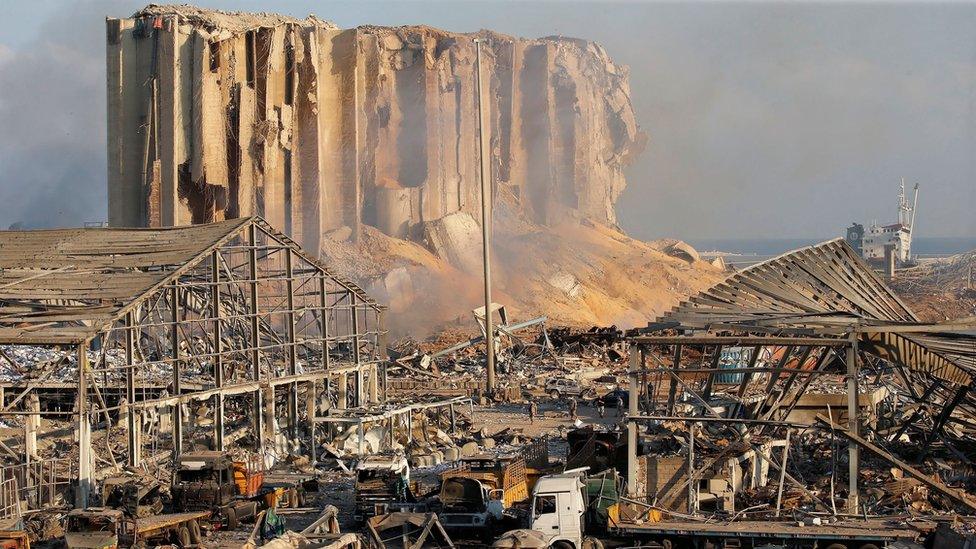
The huge explosion caused widespread destruction in Beirut port
Early reports of the explosion in Beirut's port began circulating on social media moments after the blast.
Whilst most of the videos appeared authentic, filmed by residents from their homes, rumours about the cause of the blast were also quickly shared on platforms such as Twitter and WhatsApp.
So, what misinformation spread online?
From fireworks to nuclear bombs
The videos circulating showed smaller explosions and an initial fire followed by the huge blast, which led to tweets suggesting it had happened at a firework factory.
Claims about fireworks seemed plausible at the time, but other viral tweets suggested the event was caused by a nuclear bomb because of the white mushroom-like cloud seen rising in some of the footage.
A now-deleted tweet suggesting the explosion was "atomic" was shared by a verified Twitter account with over 100,000 followers and racked up thousands of shares and likes.
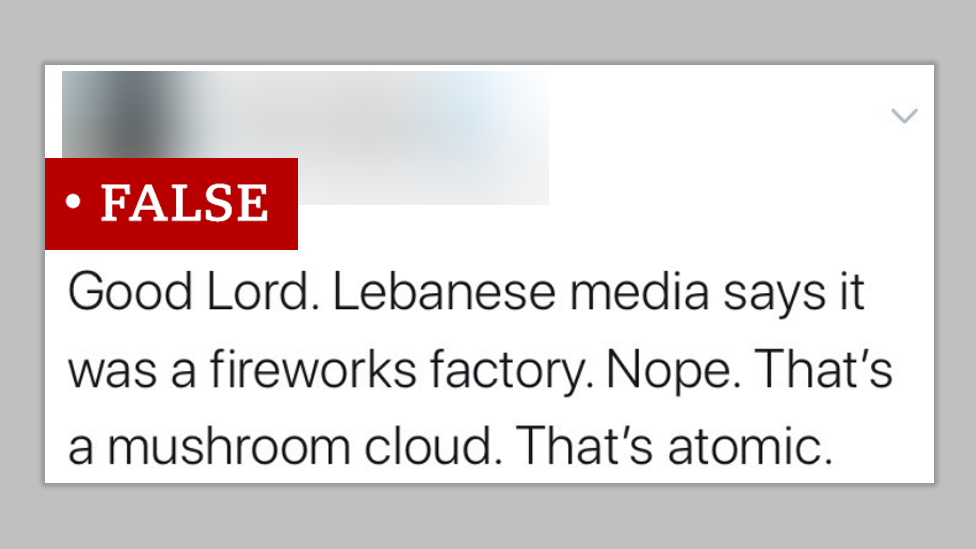
A tweet falsely claims that the explosion in Beirut was "atomic"
Weapons experts have been quick to point out that had the explosion been caused by a nuclear device, it would have been accompanied by a blinding white flash and a surge of heat that would have severely burned people.
Also, mushroom clouds are not unique to nuclear bombs. According to experts, they are a result of the compression of humid air, which condenses water and creates the cloud.
'Bomb or missile attack'
Unfounded claims continued to spread, blaming the "nuclear bomb" on the US, Israel or Hezbollah. These were shared by partisan news sites as well as public figures.
Conspiracy theories promoted by far-right groups have also been shared on Facebook, 4chan, Reddit and messaging apps like Telegram, according to research from the Institute for Strategic Dialogue.
Messages have mainly focused on false claims that this was an Israeli attack, either a bomb or a missile strike on a Hezbollah weapons depot.
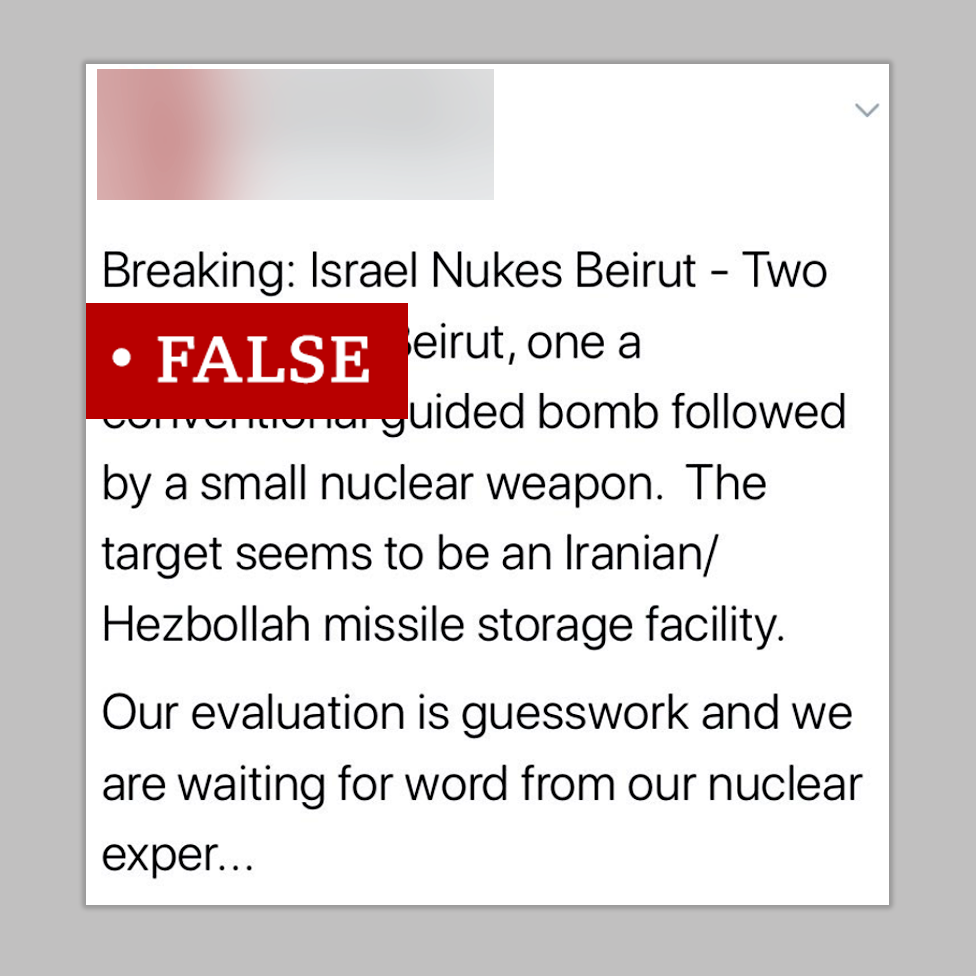
False claims circulated online suggesting a missile caused the explosion in Beirut
Chloe Colliver, from the Institute for Strategic Dialogue, told BBC News: "We have seen known disinformation sources, including far-right extremist networks online, spreading unfounded claims about the nature and motivations behind the blast.
"This has included theories trying to tie the explosion to Israel or other nation states."
The authorities in Lebanon and Israel have dismissed suggestions that Israel had anything to do with the incident.
Far-right conspiracy theorists, including QAnon supporters, have also started sharing false claims about the explosion on Facebook. They suggest that the attack is related to a "war between the government and the central banking system".
QAnon is a wide-ranging, unfounded conspiracy theory that says US President Donald Trump is waging a secret war against elite Satan-worshipping paedophiles in government, business and the media.
Israeli PM didn't point out blast site in 2018
Photographs of Israel's Prime Minister Benjamin Netanyahu addressing the UN General Assembly in 2018 have been posted on social media amid claims that he is pointing at the site of Tuesday's Beirut explosion.
Some social media users are using the images as "proof" that Israel had a hand in the blast.
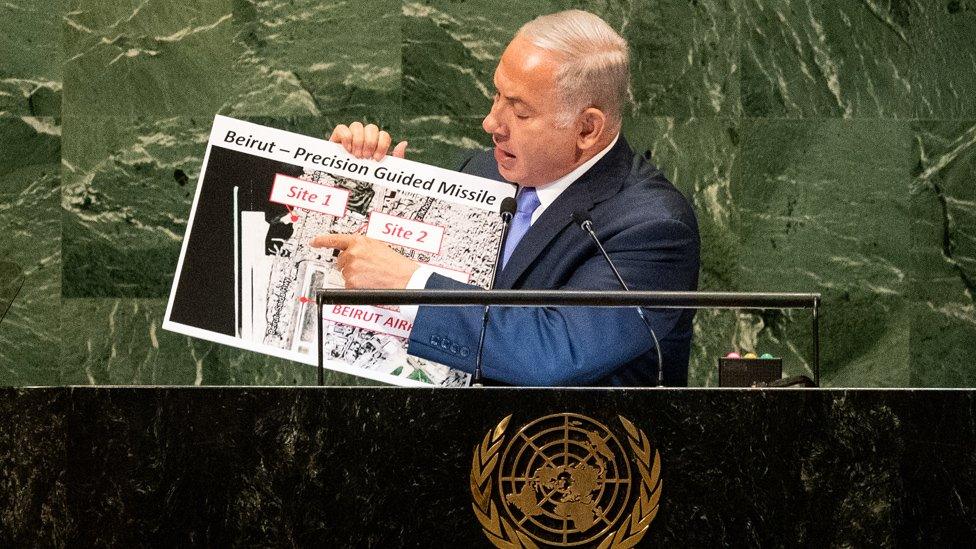
The Israeli prime minister at the United Nations in 2018
The images are genuine and not manipulated, but have been taken out of context.
Mr Netanyahu is actually pointing to a completely different district in the city of Beirut where he claimed Hezbollah was hiding weapons.
The blast site is several kilometres to the north of "Site 1" on Mr Netanyahu's map.
Trump's comments
Rumours about a possible attack picked up steam after President Trump described the event as "a terrible attack" at a White House press conference.
Research from the Institute for Strategic dialogue has identified his comments being shared and edited by far-right groups on social media to suggest that the blast was a terror attack or bomb.
One post on Telegram claimed that Trump said "it looks like a terrible terrorist attack". Instead, he actually said it looks like a "terrible attack".
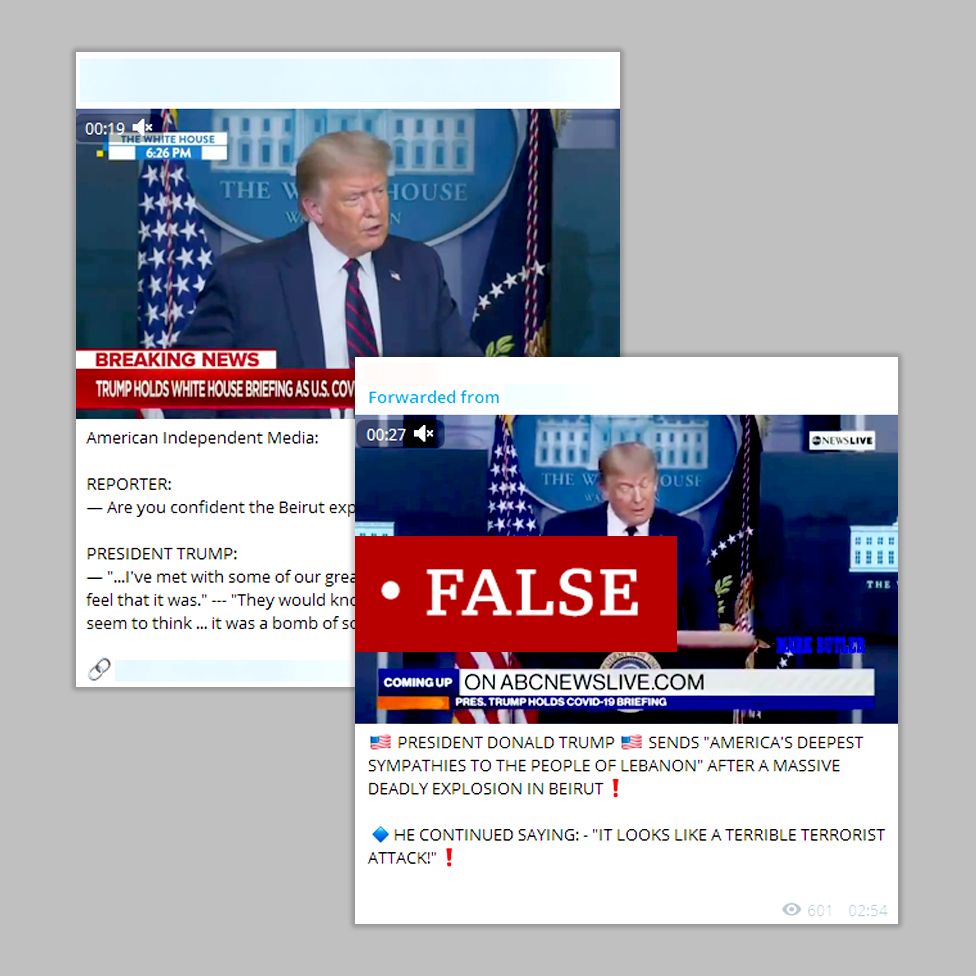
Posts on social media attributed false quotes to President Trump
"We have also seen claims building off President Trump's statement about the explosion as an 'attack', which has provided fuel to conspiracy and disinformation communities over the past 24 hours, demonstrating the risks of inaccurate language and communications during crisis moments," Ms Colliver says.
Other posts on social media make unfounded claims that Mr Trump's comments suggested the US was forewarned of the explosion.
It's an important reminder that breaking news events are a fertile time for misinformation and speculation online. Think before you share.
Additional reporting by Alistair Coleman.


